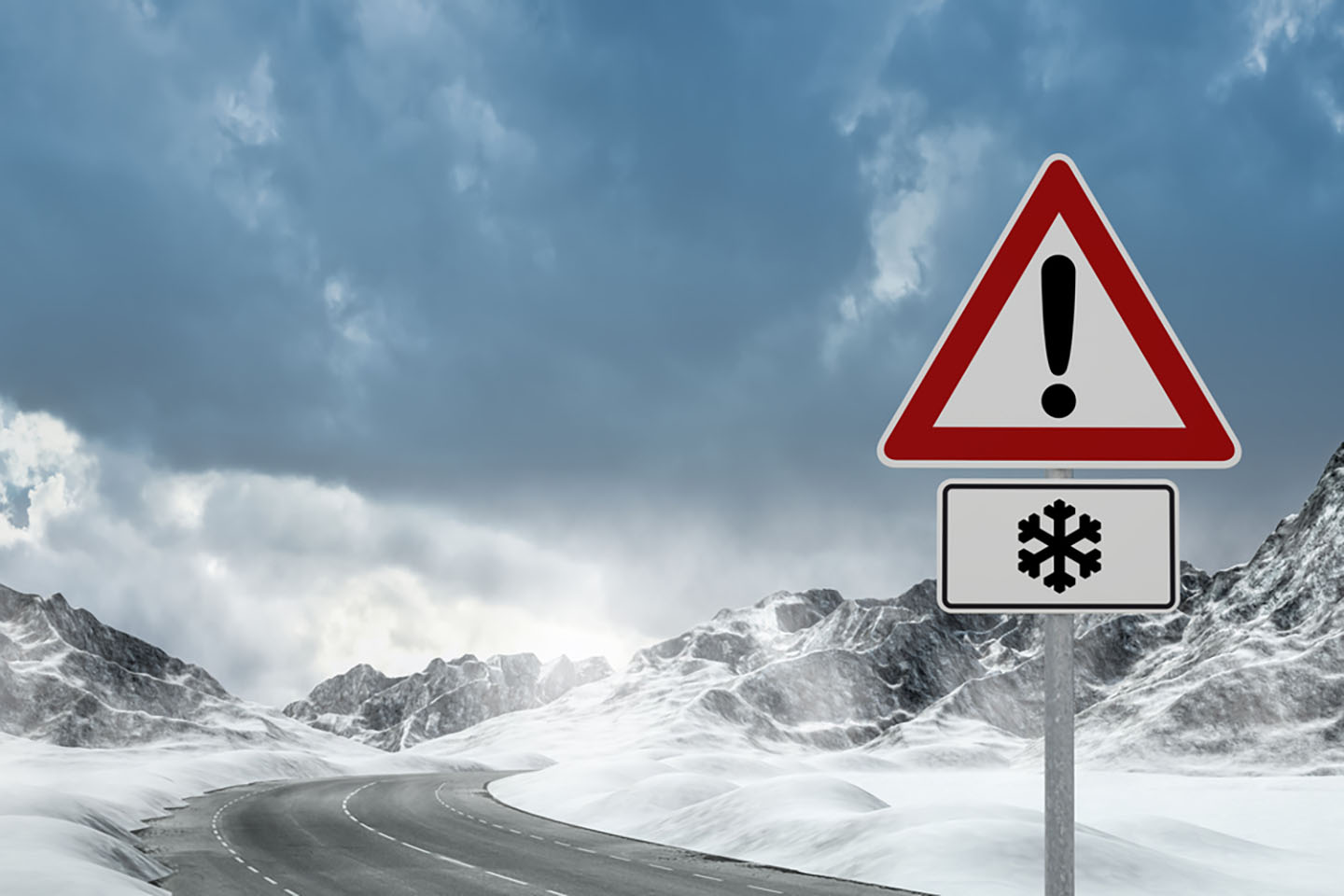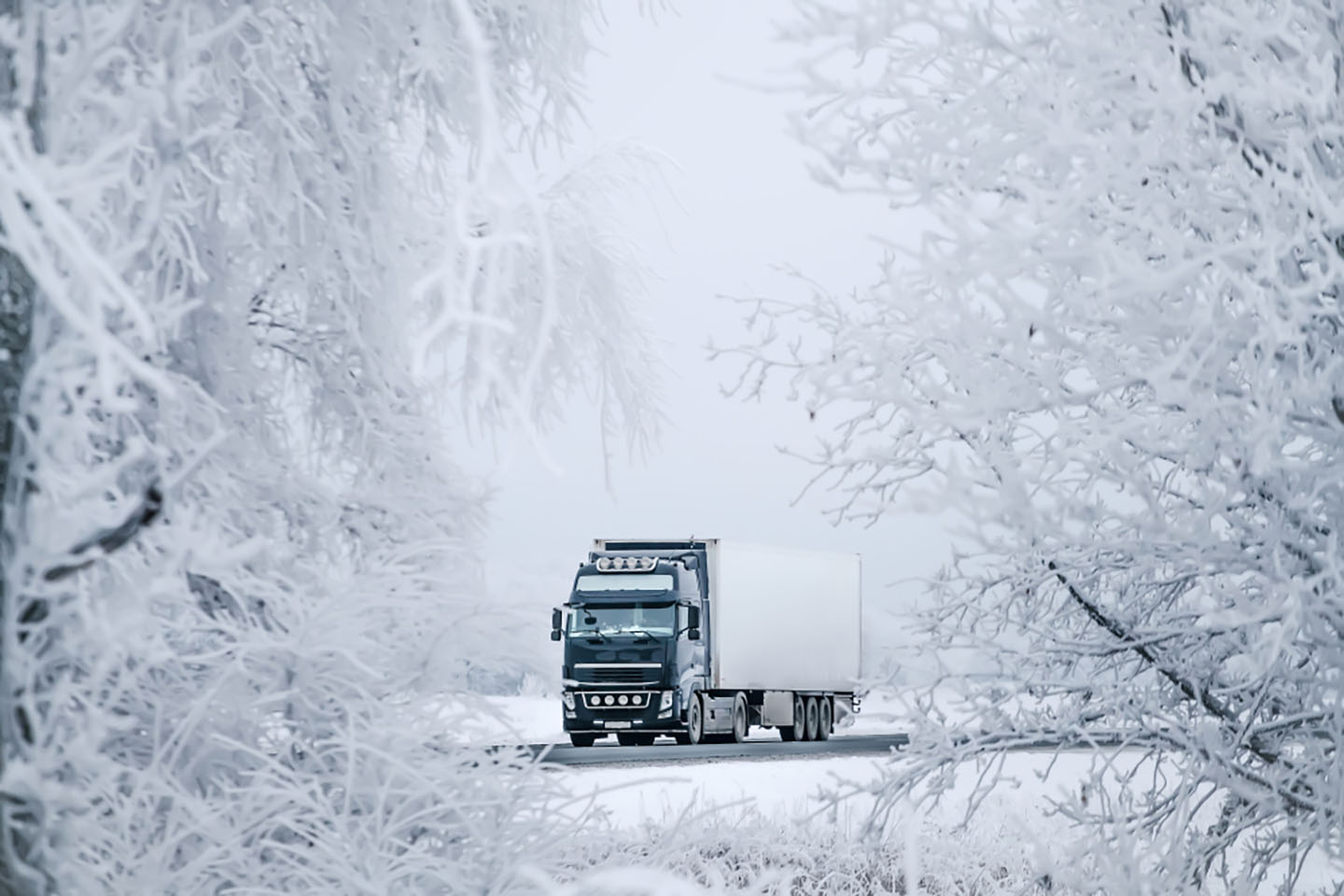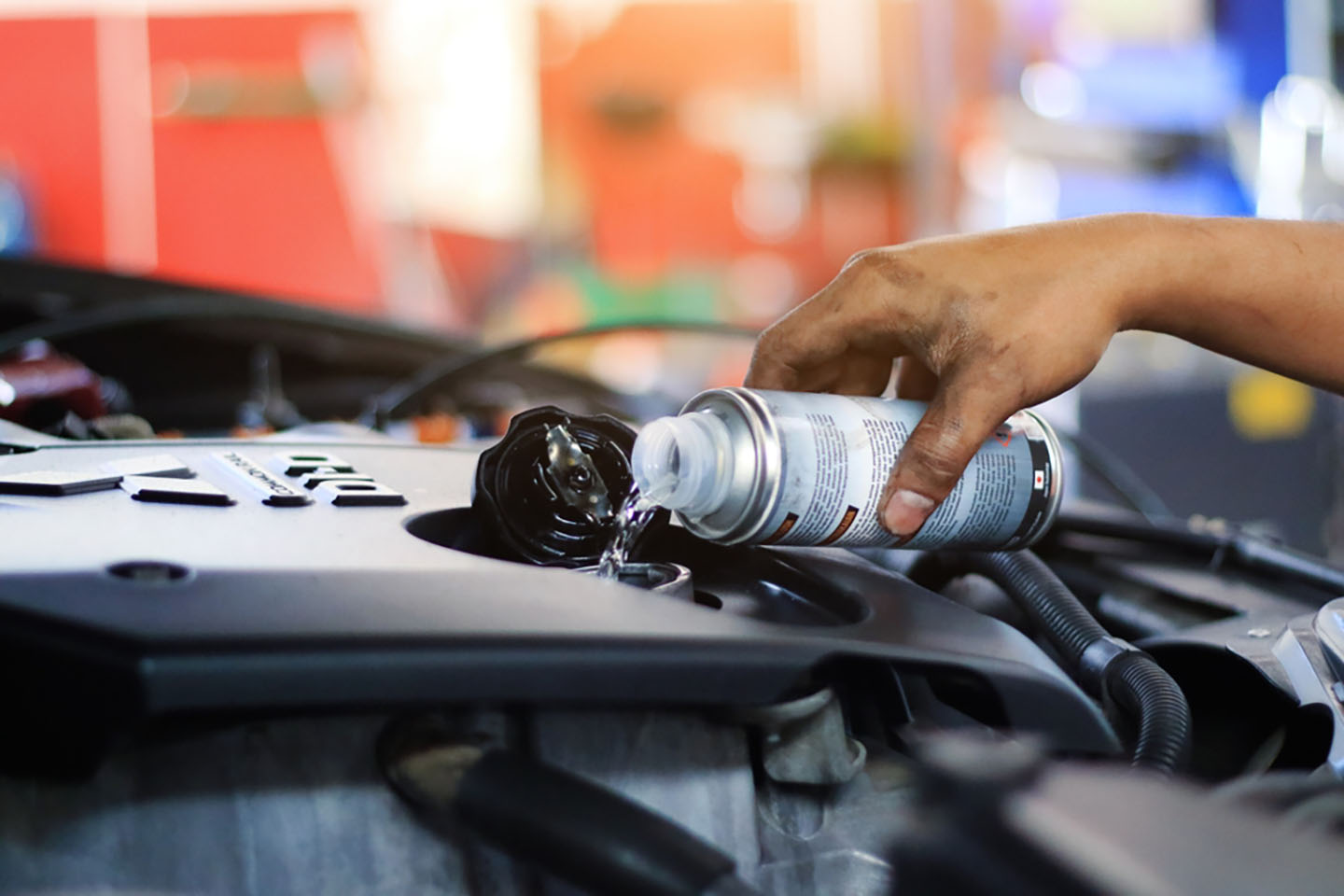How to Winterize a Car
Nov 23rd 2023

trendobjects / shutterstock
Whether you’re visiting family for the holidays or hauling goods across the country, the days around Thanksgiving, Christmas, and New Year’s are the busiest travel periods of the year. Expect more traffic, weather delays, treacherous road conditions, and additional wear and tear on your engine. The winter months tend to be especially hard on all types of vehicles, including diesel engines, but regular maintenance and adding new products to your morning car care routine will help you stave off the worst of winter. Learn how to winterize a car to protect your ride from low temperatures and costly repairs come spring.
Treat Your Fuel (and Keep the Tank Full)
The gas in your fuel tank can become a problem if it starts to freeze or gel, making it harder to push through the engine and convert into fuel. Regular gasoline won’t freeze unless it’s below -40 degrees Fahrenheit, but diesel fuel gels at 15 degrees Fahrenheit, or -9 degrees Celsius.
What Is Diesel Fuel, and How Does It Compare to Gas?
Use a winter blend, Diesel #1, in cold weather to improve start times and reduce clogging. Most diesel fuel stations automatically switch to this blend in the winter. Add anti-gel fuel additives to the tank to enhance burning times and fuel utilization.
Regardless of what type of fuel you use, keep the tank more than half-full whenever possible to reduce condensation. Mixing water with your fuel can lead to rust and structural damage. If you use the wrong fuel or let it gel, you can clog your fuel injectors and pretty much any component that comes in contact with the fuel. Replace your aging diesel fuel injectors to improve engine power and fuel efficiency in the winter.

Mindscape studio / shutterstock
Upgrade Your Tires
Snow and ice can make for a nasty commute, but you have somewhere to be. Don’t let winter weather compromise your safety. Use winter-weather or all-weather tires in areas with extreme precipitation to get more traction on slick surfaces. The tires come with larger, more durable tread patterns to help your car or truck get a grip. Inspect the tread on your existing tires to see if they have what it takes to get through winter. Replace them if you notice worn-down edges and grooves. The flatter your tires, the more you will slide. Check the air pressure in your tires before and after every ride, and keep a pump handy to reinflate them as needed. The PSI should match the ideal range listed in the user manual.
Discover All of Our Diesel Products
Reinforce Your Exhaust System
Most of the air and fuel burned in the engine is released out the tailpipe, which can cause parts of the exhaust to degrade due to extreme temperataure changes. The mixture can go from over 350 degrees Celsius to below freezing in just a few minutes, depending on how cold it is outside. Maintain your cooling and exhaust system by reinforcing the tubes, hoses, and components that transfer heat away from the engine. Check for leaks in the radiator, tighten the passageways, and watch your coolant levels to see if you’re burning through more than usual. Replace your diesel exhaust system with all new parts to avoid overheating the engine.

Rudy Wijanarko / shutterstock
Test the Battery
The battery will lose power in winter weather. The cold air makes it harder for the electricity to travel, reducing voltage. The battery starts the engine by firing up the spark plugs in a gas-powered engine or glow plugs in a diesel engine. The spark plugs use an electrical spark to trigger the combustion process, while glow plugs heat the incoming air and fuel until it’s ready to burn.
A dead or worn battery will leave you stranded or unable to start the car. Clean the battery terminal or replace it if it’s older than four years. Insulate the electrical system from the cold. Use a battery heater to keep the worst of winter at bay when storing the vehicle in a non-climate-controlled garage.
Clean and Replace Your Filters
Your fuel filters can take a beating in the winter as they fill up with debris and remove more water from the fuel. Drain the water separator at least once a week to remove excess moisture from the fuel supply. Change the filter or have it cleaned by a professional to improve the flow.
In Sum
Winter can spell trouble for all types of vehicles, but a little bit of maintenance and foresight will help you get through the ice and snow unscathed. Use these winterization tips to keep your ride in peak form all season long.
